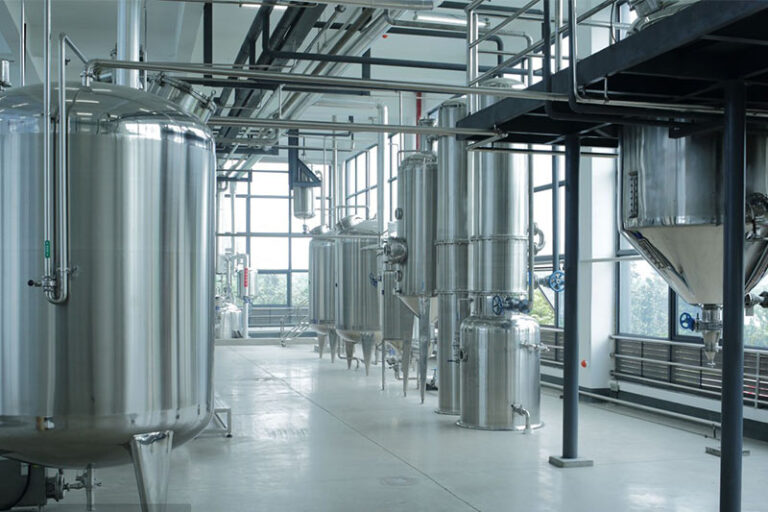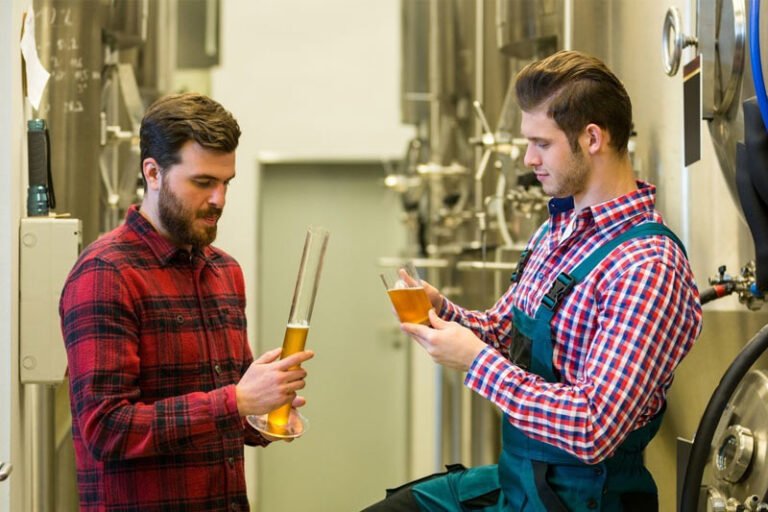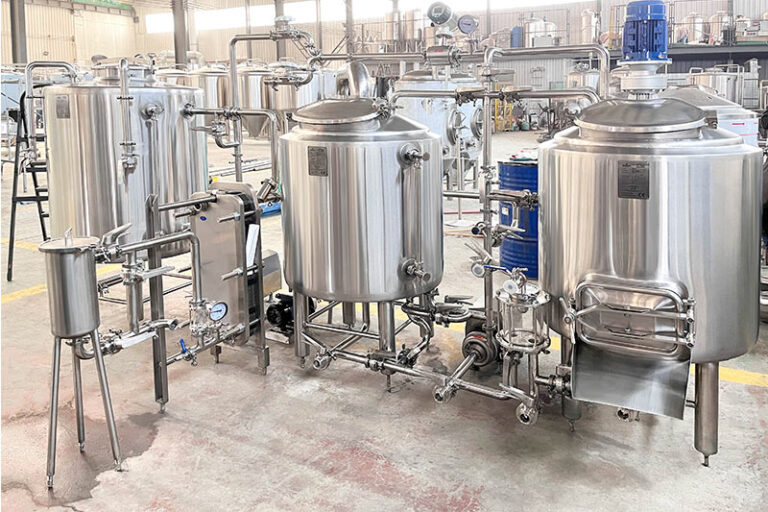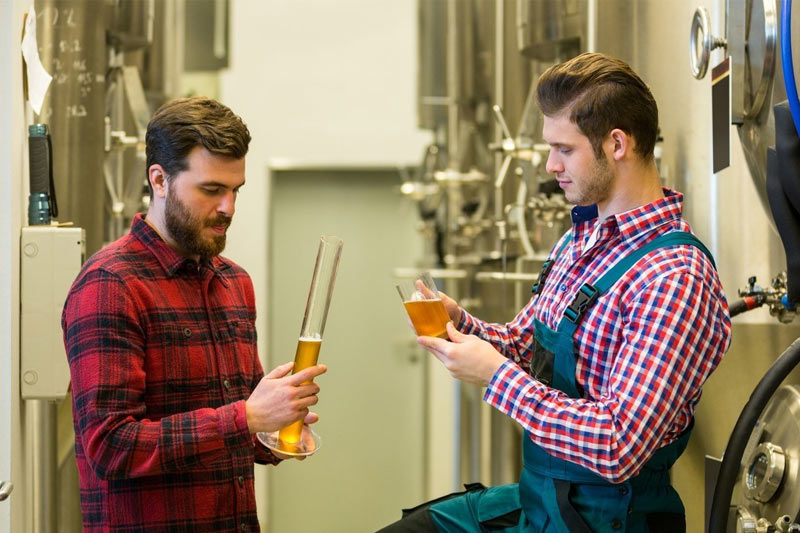Starting a microbrewery is the fulfillment of many beer lovers’ dreams, a way to pursue their passion for the art of brewing while finding their footing in the growing craft beer market. As consumer demand for high-quality, uniquely flavored craft beers continues to increase, microbreweries not only offer a unique beverage experience but also present lucrative business opportunities for entrepreneurs. From site selection, and equipment procurement to marketing, every step requires careful consideration and planning. This article will explore in detail how to successfully start a microbrewery to help you better get started on your brewing journey.

Market Research and Planning
Target Market Analysis
Before you start, it is crucial to understand your target market.
- Target Consumers: Analyze your potential customers, including their age, gender, income level, and drinking habits. Generally speaking, young people and consumers who are interested in new things are more inclined to try new flavors of beer.
- Competitors: Research existing local microbreweries to understand their products, pricing, and market positioning. You can do research by visiting their stores, tasting their products, and checking online reviews.
Trends and Opportunities
With the increase in health awareness, many consumers pay more attention to ingredients and taste when choosing drinks. Craft beer is sought after for its unique flavor and small-batch production. Observing market trends can help you find new opportunities. For example, the demand for low-alcohol or non-alcoholic beer is growing.
Writing a Business Plan
Writing a detailed business plan is a key step in creating a microbrewery. It not only helps you sort out your ideas but also attracts investors and partners.
- Market Analysis: Analyze the market situation and determine target customers and competitive environment.
- Marketing Strategy: How to promote your brand and products.
- Financial forecast: including start-up costs, operating costs, projected revenue, and profits.
Get the relevant licenses
Different countries and regions have different regulations on brewing and selling alcohol. Understand local food safety regulations and alcohol sales regulations to ensure that your business is compliant. You may need to consult a legal advisor to ensure that no necessary procedures are missed.
Before creating a microbrewery, you need to obtain the necessary legal permits.
- Brewing license: Apply for the corresponding brewing license according to the laws of the region.
- Business license: Make sure your business operates legally and complies with local business regulations.

Microbrewery site selection and space planning
Site selection is a crucial step when creating a microbrewery. The right location can not only attract customers but also optimize operational efficiency. Choose a location that is easy for customers to reach. Downtown or commercial areas usually attract more customers, but the rent may be higher. Make sure the location is convenient for transportation and has enough parking space for customers and suppliers to come.
A reasonable space layout can improve work efficiency. Ensure the smooth production process, from raw materials entering the warehouse to finished products leaving the warehouse, and each link is connected to avoid unnecessary handling. You need to evaluate the type and area of space required.
The main functional areas include:
- Production area: including brewing equipment, fermentation tanks, and cooling equipment.
- Storage area: used to store raw materials (such as malt, hops, etc.) and finished products.
- Tasting area: Provide space for customers to taste and purchase products.
- Office area: handle daily operational affairs.
Procurement and layout of microbrewery equipment
Brewery equipment
In the process of creating a microbrewery, the procurement and reasonable layout of equipment are crucial. This not only affects production efficiency, but also product quality and operating costs.
- Brewing equipment: including mash pots, boiling pots and coolers.
- Fermentation tanks: used in the fermentation process, stainless steel or plastic materials can be selected.
- Cooling system: ensure temperature control during the fermentation process.
- Cleaning equipment: ensure the hygiene and safety of brewing equipment.
- Malt mill: used to crush grains. The finer the grain, the higher the mashing efficiency.
- Wort barrel: an insulated container for wort.
- Filtration technology: equipment used to remove yeast and debris, such as plate filters.
- Heat exchanger: raises and lowers the temperature of wort. It is important to prevent contamination.
- Beer fermentation tanks: operate in a temperature-controlled environment, accurately following the instructions on the can.
- Hydrometer: measures the sugar content in the wort.
- Bright tank: a temperature-controlled container used to accelerate the carbonation process.
- Pump: transfers liquid between containers.
- Valves: Very important for controlling the flow of liquids, gases, and mixtures during the brewing process.
- Dispensing equipment: Includes beer taps (for testing yourself before others) and CO2 regulators.
- Beer kegs: Beer kegs are an important part of product packaging and are used to transport beer for supply from the tap. Stainless steel beer kegs are best suited for use. You will also need beer keg washers and fillers.

Equipment layout planning
- Production area: Ensure that the brewing, fermentation, and storage equipment are reasonably laid out for easy operation and maintenance. Design the production process to ensure a smooth flow from raw material intake to finished product delivery.
- Tasting area: Design a comfortable tasting area in terms of customer experience to increase customers’ stay time and desire to buy.
- Office area: Arrange an independent office space to handle daily operational matters such as paperwork and inventory management.
What is the initial setup cost of a microbrewery?
- Brewing equipment: including mash tuns, boiling tuns, coolers, fermentation tanks, etc., the cost is usually between $2,000 and $15,000, depending on the age and specifications of the equipment. Aging barrels, bottling, or canning equipment, the estimated cost is $1,000 to $5,000.
- Rent and facilities: Depending on the location, the monthly rent may be between $1,000 and $5,000, and at least a few months of prepaid rent should be considered.
- Raw material procurement: The procurement cost of malt, hops, yeast and other raw materials is generally $300 to $1,000.
- Marketing and brand building: including LOGO design, website construction, promotional materials, etc., the cost is about $200 to $1,000.
- License and legal fees: The license and registration fees related to brewing may be between $1,000 and $5,000, depending on the regulations in the area.
- Operating capital: It is recommended to prepare sufficient liquid funds to cover initial operating costs (such as employee salaries, daily expenses, etc.), usually $5,000 to $10,000.
Conclusion
Creating a microbrewery is an adventure full of challenges and opportunities. From brewing art to business management, every step requires thoughtful planning and firm execution. Through in-depth market research, a detailed business plan, a reasonable selection of equipment and location, and effective marketing, you can stand out in the highly competitive craft beer industry. You can also contact Micet and we will help you realize your dream.

